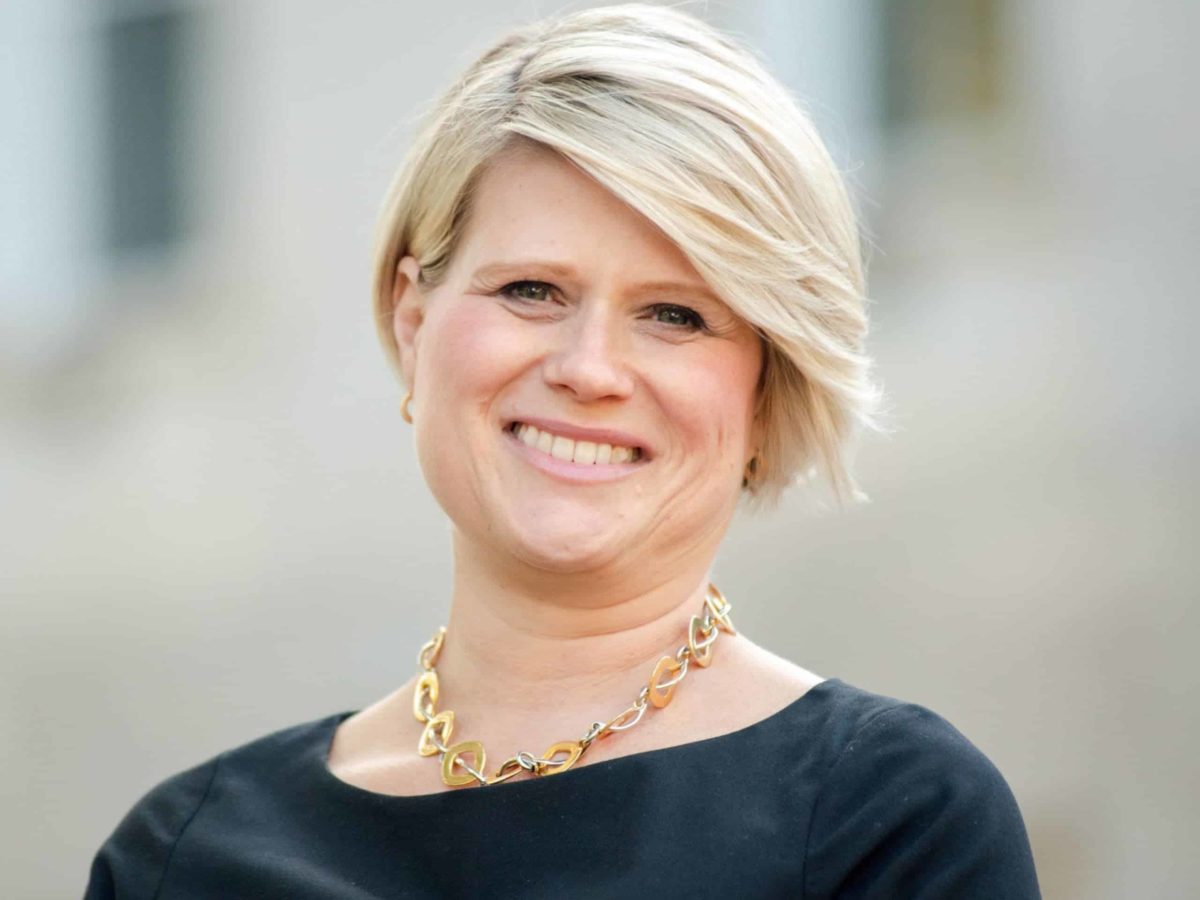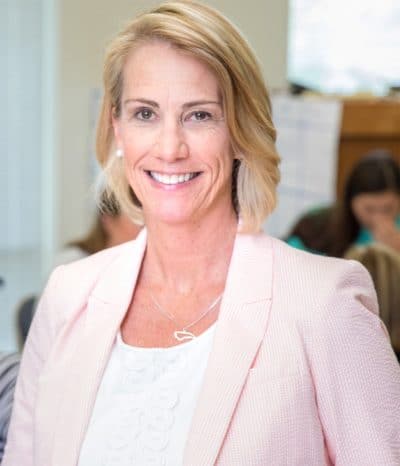
Catherine Truitt, the Republican candidate for state superintendent of public instruction, made her case to proponents of charter schools during a virtual forum on Wednesday night.
The forum, hosted by the North Carolina Association for Public Charter Schools and the North Carolina Coalition for Charter Schools, featured John Locke Foundation Vice President of Marketing and Communications Donna Martinez asking Truitt a series of questions about her stance on a variety of issues that touch on charter schools.
The Democratic candidate, Jen Mangrum, participated in her own forum with the organizations last Thursday.
In the interview, Truitt provided a more complete picture of her views on charter schools, closing out her talk by saying that politics should be taken out of the conversation about charters. She said the relationship should mirror that of private and public colleges and universities in North Carolina.
“They coexist pretty peacefully,” she said, adding: “It should be the same thing with our charter schools and our traditional public schools.”
Charter schools were first approved to open in North Carolina in the late 1990s, but the law set a cap for the number that could exist at 100. And initially, charter schools weren’t really a partisan issue. For example, when they were approved, Democrats were still solidly in control of state government.
The issue became more controversial in 2011 when the Republican-led General Assembly lifted the cap on charter schools. Since then, the number of charter schools has doubled and support of the schools has become much more divided by political party. Typically, Republicans support school choice in all its forms — charter schools, opportunity scholarships, education savings accounts, etc.
Truitt has consistently favored school choice, though she said last night and at other times that when it comes to opportunity scholarships, she wants to see the income eligibility continue to be restricted to low-income families.
“I don’t support the idea that everybody regardless of income should have an opportunity scholarship,” she said.
The opportunity scholarship (voucher) program serves low-income students by giving them funds that can be used to pay for private school tuition.
One point of contention came up during the debate when Martinez asked Truitt about a comment she had once made saying that where traditional public schools are succeeding, there should not be a charter school.
Truitt expressed surprise at the question, saying she could not remember ever saying that.
“It’s very possible that I said that a long time ago … certainly right now, here today, I don’t think that where high-performing schools exist … that we should disallow charter schools,” she said. “I don’t believe that.”
Following the forum, Lindalyn Kakadelis, the executive director
of the NC Coalition for Charter Schools, emailed Truitt with a link to Truitt’s response to a questionnaire from the Durham People’s Alliance. There, Truitt wrote: “…where traditional public schools are succeeding, there is no need for new charter school to open.”
In response to the email from Kakadelis, Truitt wrote that she wrote those comments in December 2019.
“Since that time, I have come to believe that charter schools can and should exist wherever there is a desire to create one,” she went on to write.
Truitt also said during the forum that she is in favor of shutting down charter schools that are not performing. But not just them:
“I also believe that we should shut down (traditional) public schools that are not performing, or have some recourse as to how they could be improved,” she said.
She then talked about some of North Carolina’s attempts to reform low-performing schools. She said the Innovative School District is going nowhere.
The ISD, at its most basic level, is a program that was supposed to ultimately take some of the lowest-performing schools in the state and put them in a virtual district, which could be operated by outside operators, including for-profit organizations. It originated in legislation passed during the 2016 General Assembly short session as lawmakers’ attempted to find an innovative way to turn around low-performing schools. So far, the Innovative School District only has one school and has been plagued with turnover and other issues.
But Truitt praised the restart model of reform. This is a model that allows certain low-performing traditional public schools to have charter-like flexibility. Rowan-Salisbury Schools has been named the one and only renewal school district — essentially the entire district can operate using the restart model.
When asked if she thought that North Carolina should change the education funding model to one where the money follows the student no matter where they go to school, Truitt said she thought it made sense. She said she hadn’t seen any data on what the implication of that change would be for charter schools.
Regardless, she said she thinks it’s coming to North Carolina.
“I think that this is coming down the pike,” she said. “I just don’t know when.”
When asked about her vision for charter schools in North Carolina, Truitt said that the growth of the school choice movement has led to the idea of the parent as consumer. She said a lot of superintendents of traditional public schools are starting to see students as the responsibility of everyone and are taking an interest in their students even when they are not in the traditional public school system.
She said it’s not unusual for a student to perhaps be homeschooled, later attend a charter school, and even later maybe attend a traditional public school all in the same community.
“I think it’s critical that those of us who work in education … take this view and stop pitting certain groups against each other,” Truitt said.
Truitt talked a few times about the “us and them” mentality and the need to move beyond it when it comes to charter and traditional public schools.
She said she has visited districts where traditional public schools and charter schools are exchanging innovative practices — one of the early promises of charter schools that is often criticized for being unrealized.
She said she is in favor of giving charter-like flexibility to traditional public schools and that she wants to help everybody move past the perception that charter schools are taking money from traditional public schools, a notion she said was untrue.
“I’ve never seen anything that suggests that a school is unable to take care of its fixed costs because of a successful charter school,” she said, adding: “And furthermore, schools exist for students, and not the other way around.”
In her final statements, Truitt talked about how charter school expansion was an outgrowth of Barack Obama’s administration, but that the issue has now become a political football.
She would like the focus to be on whether charter schools are serving students, giving parents the choices they want, and “recognizing that it’s not the state’s responsibility to tell a parent what is best for their child.”
Watch the forum for yourself below.


